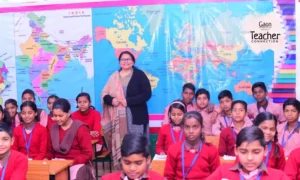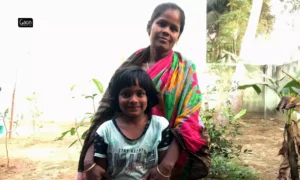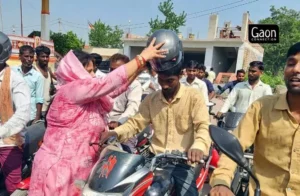Rajgarh, Madhya Pradesh
Wearing red sarees and holding placards, hundreds of women are often seen walking the roads in the rural areas of Rajgarh warning against mistreatment of women and encouraging them to raise their voice against violence.
These women, many of whom were victims of abuse, are today part of an army called Lal Chunar, who go around the villages in Madhya Pradesh raising a red flag against patriarchy and social practices that victimise women.
Natra Jhagda, an old ritual still practised by tribal and other marginalised groups in central India, is something against which Lal Chunar has been fighting since the group was set up in 2009.
So far, the all-women-team consisting of 927 active members has come to the rescue of 276 victims of this practice and helped rehabilitate them. The Lal Chunar volunteers are active in Madhya Pradesh and neighbouring Rajasthan.
Natra-Jhagda is an old ritual which has become an exploitative tool to extort money. Traditionally, if a woman wants to call off her wedding that was fixed in her childhood, and wishes to marry another man then she and her family have to compensate the groom’s family for doing so by coughing up huge sums of money which is locally known as ‘jhagda’.
Also Read: Bihar: A Mushrooming Success with Rural Women at its Centre
The local gram panchayats in Rajgarh’s villages often order the girls’ families to pay the jhagda amount to the husband’s family, which runs into several lakhs of rupees (even up to Rs 50 lakh).
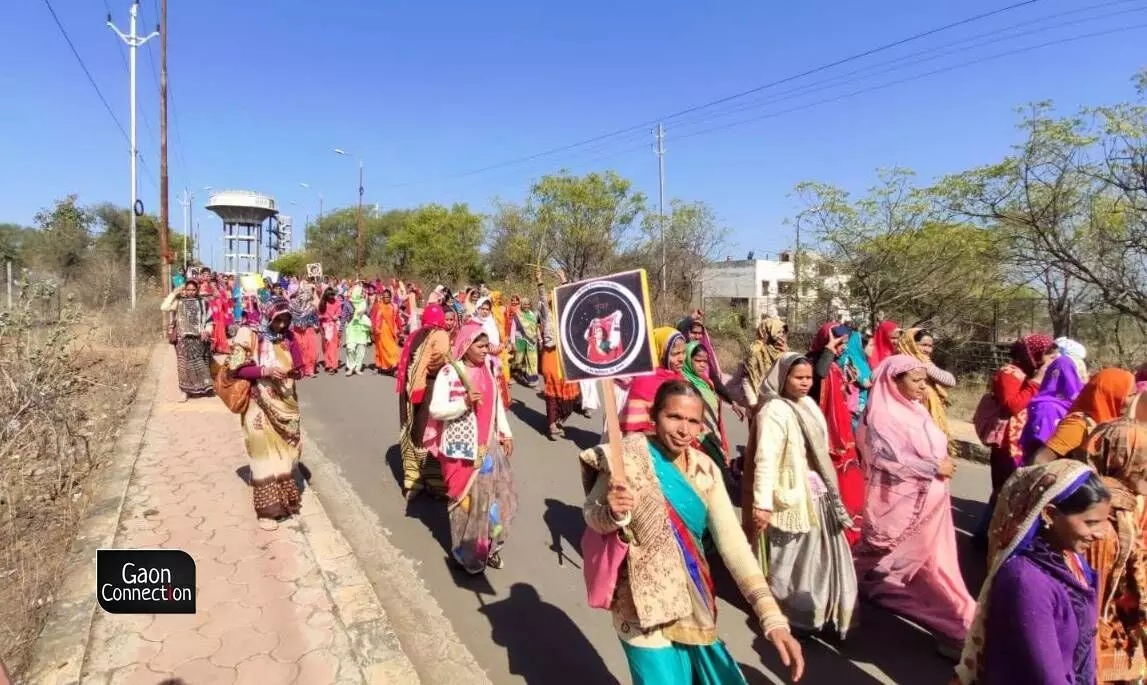
The Lal Chunar volunteers are active in Madhya Pradesh and neighbouring Rajasthan.
If she wants to walk out of an abusive marriage, and marry again to another man, even then she has to cough up money to the family of her abusive husband.
“This is an age-old practice which leads to exploitation of women and their families. Often, there are clashes and cases of arson,” Mona Sustani, the founder of Lal Chunar, told Gaon Connection.
“Also, when a woman is abandoned by her husband, any other man who wants to marry her, he has to pay huge sums of money to her previous husband. This essentially leads to trafficking of innocent girls who are sold like cattle,” alleged Sustani. She is a political activist who is at present a member of the ruling Bharatiya Janata Party in the state.
Victims of Natra-Jhagda are found in several villages of Rajgarh district. A young woman from Nari village in Madhya Pradesh’s Rajgarh district, who did not wish to be identified, is an example of the exploitative practice. Her marriage was fixed as per the Natra Jhagda traditions, when she was a child and she left home to join her husband in his village Khajla when she attained puberty.
However, mistreatment by her in-laws forced her to return to her parents’ house. But calling off her marriage and remarriage meant she would have to pay her first husband a sum of Rs 50,00,000.
“I had lost all hope of being able to live my life happily with anybody else. But getting to know about Lal Chunar rekindled that hope,” the 31-year-old victim of Natra-Jhagda told Gaon Connection.
The Lal Chunar group ensured that she was able to marry the man of her choice, without having to pay any jhagda, and she is presently living a married life in a village in Rajgarh.
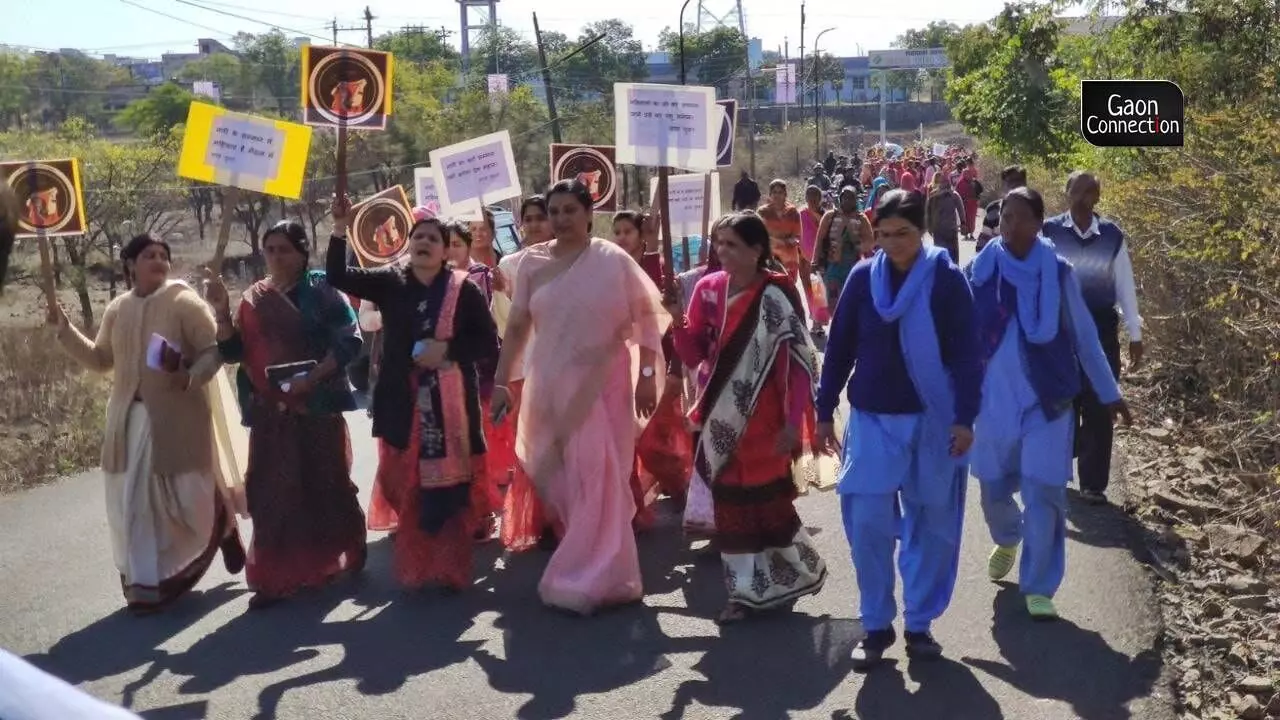
The police complaints that have been registered in Natra Jhagda cases are leading to conviction of the accused men.
Seema Singh, an assistant professor in the Department of Sociology at the Government Model College Rajgarh, stated that Natra-Jhagda often becomes a front for trafficking.
“In some cases, the girl gets passed as wife from one man to another. The men essentially buy the wife from another man and all this happens in the garb of tradition. There has been some reduction in the incidence of this ritual but still a lot needs to be done,” Singh told Gaon Connection.
The government officials are also aware of the exploitative practice. “It is practised not only amongst the tribal population but also amongst the backward classes [SC and OBCs]. The local NGOs like the Lal Chunar are helpful in rescuing girls from oppression,” Sunita Yadav, the district programme officer in the state’s Women and Child Development Department told Gaon Connection.
“Apart from NGOs, the government also depends on anganwadi or ASHA workers who often inform the administration of such cases and the legal course is then followed. People are not as unabashed about the custom as they were a decade ago,” the district programme officer added.
Also Read: A Gurukul Run by Transgender Provides Free Education and Meals to Underprivileged Kids
According to Sustani, Lal Chunar has so far saved 276 women and has helped rehabilitate them. The Lal Chunar volunteers not just rescue the girls from exploitative marriages but also help them in remarrying to a person of their choice. The group ensures that the rehabilitated victims are not harassed by their previous husbands.
“They rehabilitated women are doing well in life and are living a dignified life,” said Sustani, whose Lal Chunar workforce has several volunteers who were once victims of Natra Jhagda.
“Whenever our on ground members inform us about any case where the girl’s family is being forced to pay money for leaving her husband, we intervene. A team of our activists visits the village and warns the husband’s family of getting them booked,” said Sustani.
“Our Lal Chunar group is popular in the villages of Rajasthan and Madhya Pradesh. People generally stop harassing the girl’s family when they see us mediating,” Sustani added.
According to Tanveer Warsi, a Rajgarh-based journalist, the Lal Chunar team has ensured that 450 first information reports (FIRs) have been filed in cases of domestic violence and trafficking.
“I was married in childhood and my education got disrupted. I wanted to leave my husband but the panchayat ordered my family to pay twelve lakh rupees as jhagda to my husband. With the help of Lal Chunar, I appealed against the diktat and I am living with my parents and preparing for a competitive examination,” said another victim of the ancient practice.
Gradually, as the women are learning of their legal rights and are getting the support of Lal Chunar, they are speaking up. The police complaints that have been registered in Natra Jhagda cases are leading to conviction of the accused men.
Also Read: The Women Mechanics of UP Roadways Wield Wrenches and Break Stereotypes
“I am proud to say that in the cases in which I have prosecuted men who have harassed women, most of them have been convicted for their crimes. The Lal Chunar group is vital in getting these people booked,” JP Sharma, the public prosecutor in the district court, told Gaon Connection .







